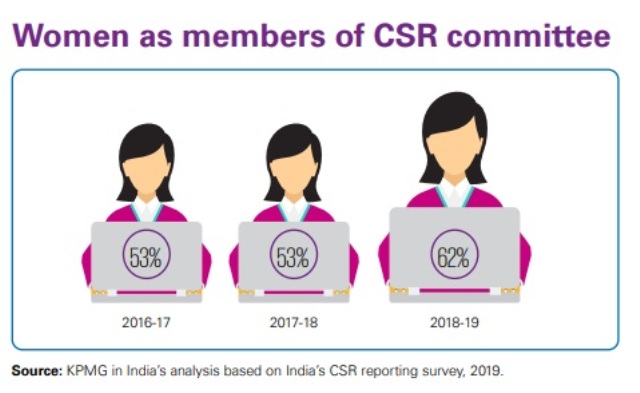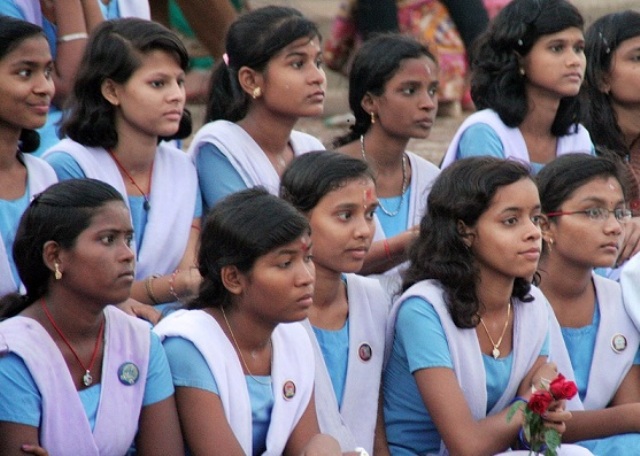New Delhi, 20 March 2020: Expenditure of CSR funds in companies where a woman is chairperson of the CSR committee has increased significantly towards ‘reducing gender inequality’. It has increased from 14 per cent in 2016-17 to 42 per cent in 2018-19, a whopping 200 per cent increase, as per a recent report.
"This truly is an illustration of Gender-Budgeting being core to such companies’ philosophy of CSR," says the report prepared by KPMG-a network of more than 100 companies from across the globe.
As per the report, at least 38 per cent of the top 100 companies did not have a woman in their CSR committee in 2018-19. Interestingly, all these companies are Indian origin, since all non-Indian origin companies do have at least one woman member on CSR their committee.
Just as the Companies Act, 2013 demands the presence of women directors on Board, CSR committees too have seen presence and active involvement of women members. More than half of the companies have a presence of women members on the CSR committee and 38 per cent of such companies have a woman as the chairperson of the CSR committee, says the report.
AS PER THE REPORT, AT LEAST 38 PER CENT OF THE TOP 100 COMPANIES DID NOT HAVE A WOMAN IN THEIR CSR COMMITTEE IN 2018-19.
In the report, KPMG analysed the performance of the Act in the last five years and how companies are responding. Published in February, the report is the analysis of 100 largest listed Indian origin companies by market capitalisation (N100).
But given the fact that mere presence of women in CSR committees ensures the effort in direction of reducing inequality and a step towards Gender- Budgeting, it must be pushed in a time-bound manner.
Even the government believes that Gender Budgeting is a powerful tool for achieving gender mainstreaming so as to ensure that benefits of development reach women too.
It is not an accounting exercise but an ongoing process of keeping a gender perspective in policy/ programme formulation, its implementation and review. The rationale for gender budgeting arises from recognition of the fact that national budgets impact men and women differently through the pattern of resource allocation.
Women constitute 48 per cent of India’s population, but they lag behind men on many social indicators like health, education, economic opportunities, etc. Hence, they warrant special attention due to their vulnerability and lack of access to resources. The way Government budgets allocate resources, has the potential to transform these gender inequalities. In view of this, Gender Budgeting, as a tool for achieving gender mainstreaming, has been propagated.
















